Recently a group of Irish agricultural contractors made a visit to one of their counterparts in the Mannheim region of Germany, which provided an interesting insight into how the sector is performing and what challenges it may face in the future.
The visit to see the operations of Agrotec, run by Horst and Veronika Walter near the town of Walldürn, was organised by the John Deere dealership Geary’s Garage, in co-operation with the Association of Farm and Forestry Contractors in Ireland (FCI) and their German counterparts BLU.
Horst and Veronika Walter started their agricultural contracting business in 1999 with one self-propelled silage harvester and three tractors.
Since then, they have built a €1.5m business on servicing local farmers, which operates with four John Deere self-propelled silage harvesters and a fleet of 12 tractors, with a staff of 27 people, only five being full-time operators.
Biogas plants
Their machinery fleet is impressive and much of it is John Deere-branded. The big growth in their business took place between 2004 and 2005 when the German government supported the widespread development of biogas production from anaerobic digesters. Horst and Veronika provide services to 12 biogas plants within a 100km radius of their region.
These biogas plants require between 100ha and 800ha of maize depending on their size and scale. Some produce clean gas for sale to the network, while others generate electricity on-site for the national grid. Interest in biogas appears to be waning in Germany though, with very few new biogas plants being built, according to the Walters.
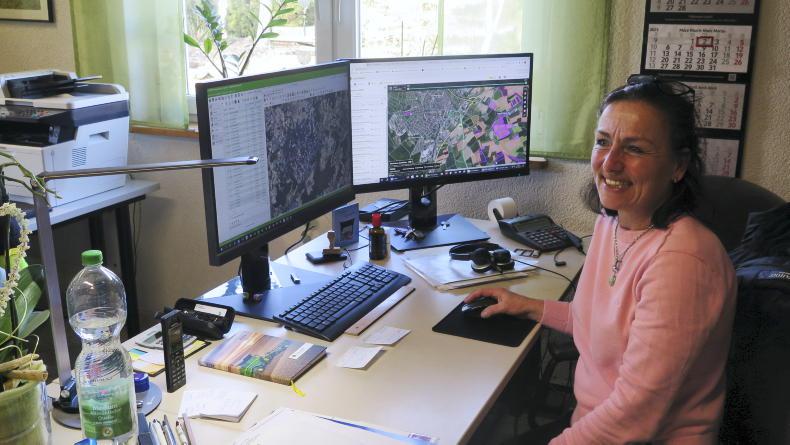
Veronika runs the office providing work maps for the drivers and their farmer clients.
Harvesting maize for biogas plants is Agrotec’s most profitable enterprise. At its peak, Horst and Veronika were harvesting 4,000ha of maize silage. Now, with less interest and more competition, they harvest about 2,500ha of maize for digesters each season.
They also provide a full maize sowing service with a John Deere eight-row planter and new Väderstad machine, including tillage operations and the application of slurry and digestate – the high fertiliser value waste from the biogas plants they service. They use a fleet of two trucks coupled with Veenhuis spreaders, all fitted with trailing shoe slurry applicators.
Technology investment
The Walters have invested in technology systems from the beginning, with Agrotec being significantly driven by the use of new precision farming and machine location technology. Veronika is very involved in the business and manages work operations from the office in their yard, attached to their modern machinery workshop that was built in 2004. Another machinery shed was built in 2012, so all machines are stored under cover – including snow ploughs. They are contracted by their local authority to have three tractors on full standby for the winter months.
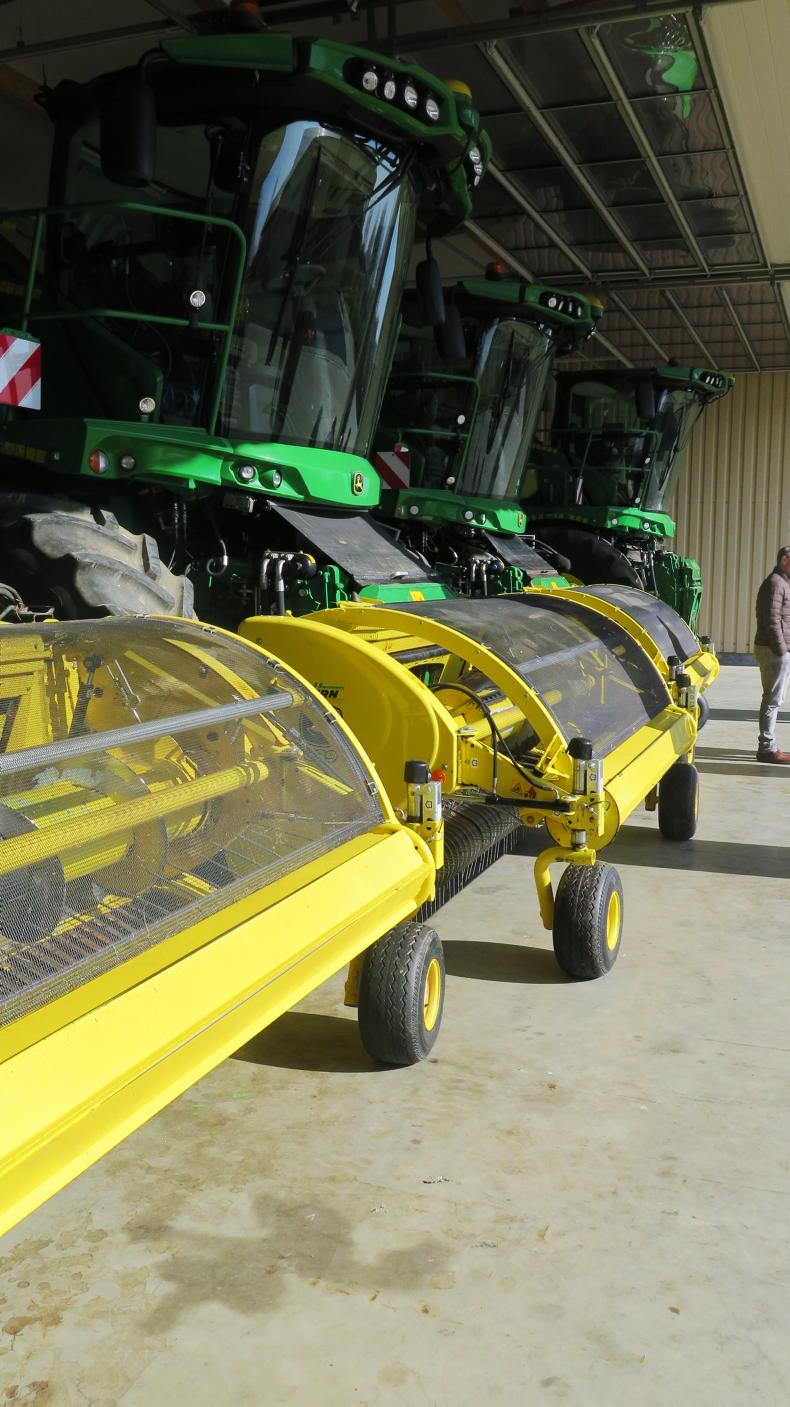
Three of the John Deere self-propelled silage harvesters in the Agrotec fleet include John Deere JD 9800i and JD 88001 each with Kemper 12 row headers and two JD 8500i machines with Kemper 10 row headers.
They also use the John Deere JD Operations Centre system, with JD Link and a separate business management programme called FarmFacts. Veronika was a pioneer 20 years ago and has gained a lot of experience from this, much of which she has shared with John Deere to improve the system.
Jobs are allocated using computer mapping systems and each driver has an iPad, which Veronika sends instructions to, including navigation details to prevent the driver working the wrong field or plot. When the work is completed, the driver sends details back to Veronika in the office, allowing Veronika to create an invoice with the mapping details attached. Veronika also provides a field mapping service to their farmers at an additional cost of between €15 and €30/field.
This is backed up by a simple board system in the office that tracks each day for two months on a chart. Each week the tractor operators and their machines are allocated a job, posted on the board for ease of viewing. Horst will then oversee the machine activity and ensure the operators have the necessary equipment, fuel and parts support. He will also monitor each machine’s movement through the John Deere system on his desktop computer as well as on his smartphone.
For maize harvesting, they use their HarvestLab system to add crop information, particularly for biogas clients. The maize silage harvesting for the biogas plants is charged on a tonnage basis, as many have their own weighbridges on-site. A distance factor is included as well as a dry matter measurement. They then issue an invoice to the farmer once the silage pit is closed (they don’t take responsibility for covering the pit) and get paid three to four weeks later.
Agrotec provide grass silage harvesting for a large number of dairy farmers in their region too. Dairy farm enterprise sizes have increased in the last 10 years, with now more than 100 farms having herd sizes of 400 to 500 cows. Many of these are also the site of a biogas plant.
For grass harvesting they charge by the hour because many of these farmers don’t have weighbridges and are not yet satisfied with the tonnage measurement accuracy of the HarvestLab system. For this reason, they charge €170/hour for the harvester alone at grass harvesting.
Upgrading of equipment and diesel
Eight of the tractors in their fleet, recently upgraded for 2023, have been purchased with the John Deere PowerGard protection system. This gives a full repair and breakdown cost coverage that allows the Walters to manage running costs.
They aim to completely change their tractor fleet every five to six years, with 5,000 to 6,000 hours on the clock. They carry out all of the oil and filter changes themselves, while other repairs are carried by Zuern, their local John Deere dealer.
The self-propelled silage harvesters are changed every seven to eight years. All have grass and maize headers, plus a wholecrop header for one of the machines.
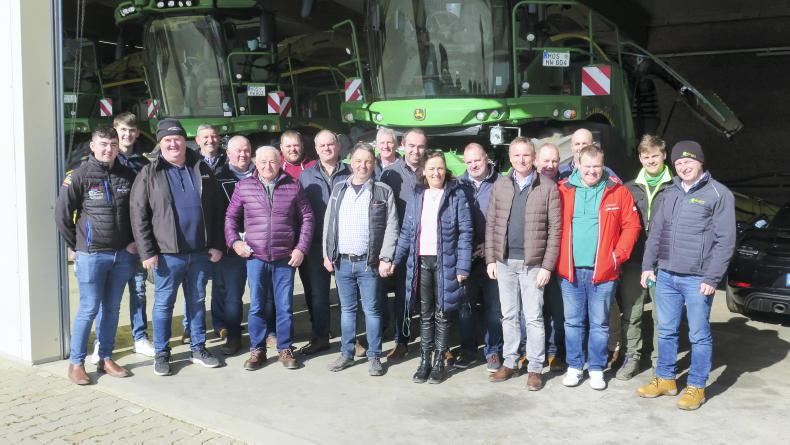
The Irish contractor group from the Clare, Kerry and Limerick region that visited the Agrotec business of Veronika and Horst Walter with the support of Geary’s Garage, Kilmeedy, Limerick and Clarecastle, Clare. The photograph includes local John Deere dealer Rolf Zuern who provided translation support.
There is only one form of diesel in Germany, and farmers (not contractors) get a 22c/litre rebate on all diesel purchases. Diesel is currently costing €1.50/litre (plus VAT) and many farmers provide diesel to the contractors. Typically, the tractors and harvesters go the farm with full tanks of diesel, which are refilled once the job is done or at the end of each day.
Where diesel is not supplied by the farmer, the contractor will include a diesel invoice as part of the overall job invoice. The farmer can then recoup the rebate on the diesel supplied by the contractor. The system is fully transparent to the farmer paying for the diesel supplied.
Labour issues
Labour issues are becoming less difficult, according to Horst and Veronika. They are not facing the labour shortages they had in recent years. They can’t fully understand why things have changed, but they are seeing more people who want a more interesting work life, which an agricultural contracting business offers.
Their teams work 12- to 13-hour days during the peak of the season, starting from 7am to finish at 10pm for biogas plants, as these are restricted to finish work at 10pm. Farmers are allowed longer hours so they will tend to work later, but overnight work is rarely done by their teams, while Saturday work is normal – and even Sunday work during the peak season for maize harvesting – depending on weather conditions. Wage rates vary based on experience, from €15 to €17/hour gross before tax deductions.
They are now finding that more people are interested in part-time jobs, but there are issues around the legal working hours directives regarding this. There is an unclear zone on labour hours between farming and truck-driving, but Veronika states it requires a lot of planning, which is important to not burn-out employees.
Cash (or Black Money as it is called in Germany) does not exist anymore in Germany, so the tax system allows the employer to deduct a flat 30% tax on income from part-time employees. This is easier to operate than the Irish tax credits system, where part-time employment can be very costly for the contractor and less attractive to the employee.
Business succession
We had an interesting discussion on the issue of business succession, which was timely as the Walters’ 19-year-old son Felix was away at college completing his equivalent of our Leaving Certificate. The outlook for farming in Germany is not so bright, according to Horst. Both Horst and Veronika believe that while Felix works with the business during school holidays, there’s no pressure for him to take over the running of the business.
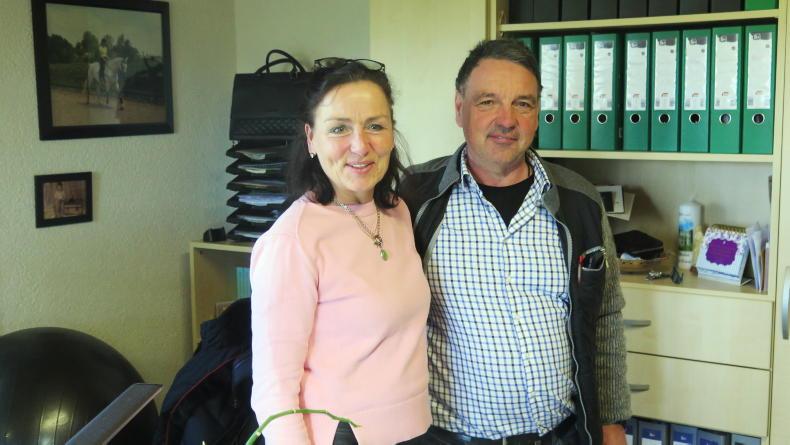
Veronika and Horst Walter who have operated the Agrotec agricultural contracting business near Wallduern in Germany, since 1999.
Like in Ireland, an agricultural contracting business in Germany is valued only by the value of its machinery in the yard. Competition in the sector remains strong, so there is no opportunity to sell customer goodwill as an asset of the business. If young Felix Walter does not want to carry the business forward, then, like in Ireland, there will be an auction or sale to dispose of the business assets and machines, with the hope of having an investment pot for retirement.
Machinery grants for
agricultural contractors
It was interesting to hear from Horst and Veronika that the German government has included agricultural contractors in its Grant Aid programme for machinery investment in key areas of low emission slurry spreading, slurry separators, modern high-technology sprayers and fertiliser spreaders.
The German Ministry of Agriculture’s grant programme for farmers and contractors supports investments in technical equipment used for more sustainable agriculture. A total of almost €1bn will be granted in a four-year window that will end in 2024. The programme is operated through the state supported Rentenbank, which also provides funding for agricultural development.
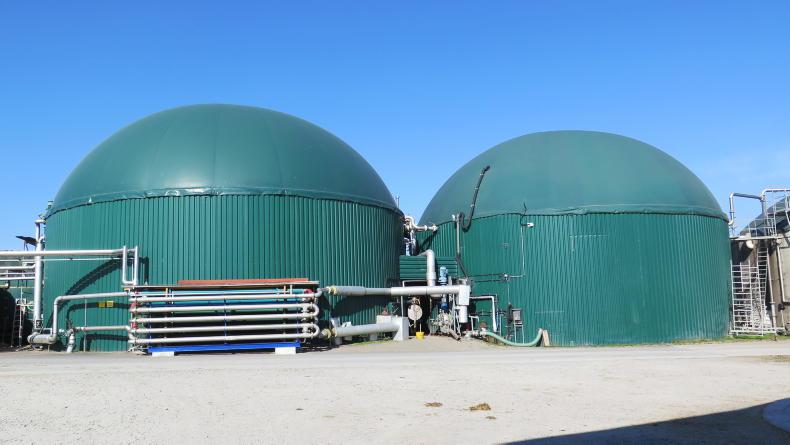
The neighbouring biogas digester plant provides harvesting opportunities for the Agrotec fleet of machines. The 220-cow dairy farm operated by Martin Stolz, uses a mix of maize silage, grass silage and cattle slurry as the biogas digester feedstock.
The equipment for which farmers and contractors receive grants is listed on the so-called positive list on the Rentenbank website. Farmers and contractors must apply each year and choose a machine that is on the list. Farmers receive a subsidy of 40%, small contractors 20% and larger contractors only 10%. The minimum investment is €10,000 and the maximum is €250,000 and includes some self-propelled slurry and spraying machinery.
The German government is providing this funding, to include grant aid to agricultural contractors, in accordance with the guidelines provided in Article 14 of Commission Regulation (EU) No. 702/2014 on the issue of certain types of aid in the agriculture and forestry sectors and Article 17 of Commission Regulation (EU) No. 651/2014 to determine the compatibility of certain categories of aid with the internal market.
Agrotec Walldürn in brief
12 tractors.4 self-propelled silage harvesters.11 silage trailers/wagons.2 articulated trucks.3 slurry tankers Joskin & Kumm.3 maize drills.4 square balers Claas & John Deere.2 round balers John Deere & Goweil.2 mowers Pöttinger and Claas.1 combine harvester. Annual turnover €1.5m.Harvesting 2,500ha of maize mostly for biogas.Staff numbers: five full-time and 22 part-time.Insurance costs €45,000 per year.Diesel cost €1.50 per litre plus VAT.Wages rates €15 to €17 per hour before tax.
Recently a group of Irish agricultural contractors made a visit to one of their counterparts in the Mannheim region of Germany, which provided an interesting insight into how the sector is performing and what challenges it may face in the future.
The visit to see the operations of Agrotec, run by Horst and Veronika Walter near the town of Walldürn, was organised by the John Deere dealership Geary’s Garage, in co-operation with the Association of Farm and Forestry Contractors in Ireland (FCI) and their German counterparts BLU.
Horst and Veronika Walter started their agricultural contracting business in 1999 with one self-propelled silage harvester and three tractors.
Since then, they have built a €1.5m business on servicing local farmers, which operates with four John Deere self-propelled silage harvesters and a fleet of 12 tractors, with a staff of 27 people, only five being full-time operators.
Biogas plants
Their machinery fleet is impressive and much of it is John Deere-branded. The big growth in their business took place between 2004 and 2005 when the German government supported the widespread development of biogas production from anaerobic digesters. Horst and Veronika provide services to 12 biogas plants within a 100km radius of their region.
These biogas plants require between 100ha and 800ha of maize depending on their size and scale. Some produce clean gas for sale to the network, while others generate electricity on-site for the national grid. Interest in biogas appears to be waning in Germany though, with very few new biogas plants being built, according to the Walters.

Veronika runs the office providing work maps for the drivers and their farmer clients.
Harvesting maize for biogas plants is Agrotec’s most profitable enterprise. At its peak, Horst and Veronika were harvesting 4,000ha of maize silage. Now, with less interest and more competition, they harvest about 2,500ha of maize for digesters each season.
They also provide a full maize sowing service with a John Deere eight-row planter and new Väderstad machine, including tillage operations and the application of slurry and digestate – the high fertiliser value waste from the biogas plants they service. They use a fleet of two trucks coupled with Veenhuis spreaders, all fitted with trailing shoe slurry applicators.
Technology investment
The Walters have invested in technology systems from the beginning, with Agrotec being significantly driven by the use of new precision farming and machine location technology. Veronika is very involved in the business and manages work operations from the office in their yard, attached to their modern machinery workshop that was built in 2004. Another machinery shed was built in 2012, so all machines are stored under cover – including snow ploughs. They are contracted by their local authority to have three tractors on full standby for the winter months.

Three of the John Deere self-propelled silage harvesters in the Agrotec fleet include John Deere JD 9800i and JD 88001 each with Kemper 12 row headers and two JD 8500i machines with Kemper 10 row headers.
They also use the John Deere JD Operations Centre system, with JD Link and a separate business management programme called FarmFacts. Veronika was a pioneer 20 years ago and has gained a lot of experience from this, much of which she has shared with John Deere to improve the system.
Jobs are allocated using computer mapping systems and each driver has an iPad, which Veronika sends instructions to, including navigation details to prevent the driver working the wrong field or plot. When the work is completed, the driver sends details back to Veronika in the office, allowing Veronika to create an invoice with the mapping details attached. Veronika also provides a field mapping service to their farmers at an additional cost of between €15 and €30/field.
This is backed up by a simple board system in the office that tracks each day for two months on a chart. Each week the tractor operators and their machines are allocated a job, posted on the board for ease of viewing. Horst will then oversee the machine activity and ensure the operators have the necessary equipment, fuel and parts support. He will also monitor each machine’s movement through the John Deere system on his desktop computer as well as on his smartphone.
For maize harvesting, they use their HarvestLab system to add crop information, particularly for biogas clients. The maize silage harvesting for the biogas plants is charged on a tonnage basis, as many have their own weighbridges on-site. A distance factor is included as well as a dry matter measurement. They then issue an invoice to the farmer once the silage pit is closed (they don’t take responsibility for covering the pit) and get paid three to four weeks later.
Agrotec provide grass silage harvesting for a large number of dairy farmers in their region too. Dairy farm enterprise sizes have increased in the last 10 years, with now more than 100 farms having herd sizes of 400 to 500 cows. Many of these are also the site of a biogas plant.
For grass harvesting they charge by the hour because many of these farmers don’t have weighbridges and are not yet satisfied with the tonnage measurement accuracy of the HarvestLab system. For this reason, they charge €170/hour for the harvester alone at grass harvesting.
Upgrading of equipment and diesel
Eight of the tractors in their fleet, recently upgraded for 2023, have been purchased with the John Deere PowerGard protection system. This gives a full repair and breakdown cost coverage that allows the Walters to manage running costs.
They aim to completely change their tractor fleet every five to six years, with 5,000 to 6,000 hours on the clock. They carry out all of the oil and filter changes themselves, while other repairs are carried by Zuern, their local John Deere dealer.
The self-propelled silage harvesters are changed every seven to eight years. All have grass and maize headers, plus a wholecrop header for one of the machines.

The Irish contractor group from the Clare, Kerry and Limerick region that visited the Agrotec business of Veronika and Horst Walter with the support of Geary’s Garage, Kilmeedy, Limerick and Clarecastle, Clare. The photograph includes local John Deere dealer Rolf Zuern who provided translation support.
There is only one form of diesel in Germany, and farmers (not contractors) get a 22c/litre rebate on all diesel purchases. Diesel is currently costing €1.50/litre (plus VAT) and many farmers provide diesel to the contractors. Typically, the tractors and harvesters go the farm with full tanks of diesel, which are refilled once the job is done or at the end of each day.
Where diesel is not supplied by the farmer, the contractor will include a diesel invoice as part of the overall job invoice. The farmer can then recoup the rebate on the diesel supplied by the contractor. The system is fully transparent to the farmer paying for the diesel supplied.
Labour issues
Labour issues are becoming less difficult, according to Horst and Veronika. They are not facing the labour shortages they had in recent years. They can’t fully understand why things have changed, but they are seeing more people who want a more interesting work life, which an agricultural contracting business offers.
Their teams work 12- to 13-hour days during the peak of the season, starting from 7am to finish at 10pm for biogas plants, as these are restricted to finish work at 10pm. Farmers are allowed longer hours so they will tend to work later, but overnight work is rarely done by their teams, while Saturday work is normal – and even Sunday work during the peak season for maize harvesting – depending on weather conditions. Wage rates vary based on experience, from €15 to €17/hour gross before tax deductions.
They are now finding that more people are interested in part-time jobs, but there are issues around the legal working hours directives regarding this. There is an unclear zone on labour hours between farming and truck-driving, but Veronika states it requires a lot of planning, which is important to not burn-out employees.
Cash (or Black Money as it is called in Germany) does not exist anymore in Germany, so the tax system allows the employer to deduct a flat 30% tax on income from part-time employees. This is easier to operate than the Irish tax credits system, where part-time employment can be very costly for the contractor and less attractive to the employee.
Business succession
We had an interesting discussion on the issue of business succession, which was timely as the Walters’ 19-year-old son Felix was away at college completing his equivalent of our Leaving Certificate. The outlook for farming in Germany is not so bright, according to Horst. Both Horst and Veronika believe that while Felix works with the business during school holidays, there’s no pressure for him to take over the running of the business.

Veronika and Horst Walter who have operated the Agrotec agricultural contracting business near Wallduern in Germany, since 1999.
Like in Ireland, an agricultural contracting business in Germany is valued only by the value of its machinery in the yard. Competition in the sector remains strong, so there is no opportunity to sell customer goodwill as an asset of the business. If young Felix Walter does not want to carry the business forward, then, like in Ireland, there will be an auction or sale to dispose of the business assets and machines, with the hope of having an investment pot for retirement.
Machinery grants for
agricultural contractors
It was interesting to hear from Horst and Veronika that the German government has included agricultural contractors in its Grant Aid programme for machinery investment in key areas of low emission slurry spreading, slurry separators, modern high-technology sprayers and fertiliser spreaders.
The German Ministry of Agriculture’s grant programme for farmers and contractors supports investments in technical equipment used for more sustainable agriculture. A total of almost €1bn will be granted in a four-year window that will end in 2024. The programme is operated through the state supported Rentenbank, which also provides funding for agricultural development.

The neighbouring biogas digester plant provides harvesting opportunities for the Agrotec fleet of machines. The 220-cow dairy farm operated by Martin Stolz, uses a mix of maize silage, grass silage and cattle slurry as the biogas digester feedstock.
The equipment for which farmers and contractors receive grants is listed on the so-called positive list on the Rentenbank website. Farmers and contractors must apply each year and choose a machine that is on the list. Farmers receive a subsidy of 40%, small contractors 20% and larger contractors only 10%. The minimum investment is €10,000 and the maximum is €250,000 and includes some self-propelled slurry and spraying machinery.
The German government is providing this funding, to include grant aid to agricultural contractors, in accordance with the guidelines provided in Article 14 of Commission Regulation (EU) No. 702/2014 on the issue of certain types of aid in the agriculture and forestry sectors and Article 17 of Commission Regulation (EU) No. 651/2014 to determine the compatibility of certain categories of aid with the internal market.
Agrotec Walldürn in brief
12 tractors.4 self-propelled silage harvesters.11 silage trailers/wagons.2 articulated trucks.3 slurry tankers Joskin & Kumm.3 maize drills.4 square balers Claas & John Deere.2 round balers John Deere & Goweil.2 mowers Pöttinger and Claas.1 combine harvester. Annual turnover €1.5m.Harvesting 2,500ha of maize mostly for biogas.Staff numbers: five full-time and 22 part-time.Insurance costs €45,000 per year.Diesel cost €1.50 per litre plus VAT.Wages rates €15 to €17 per hour before tax. 









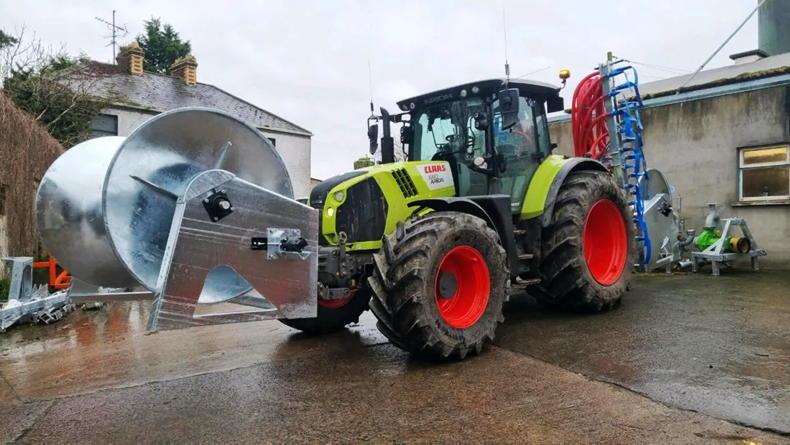
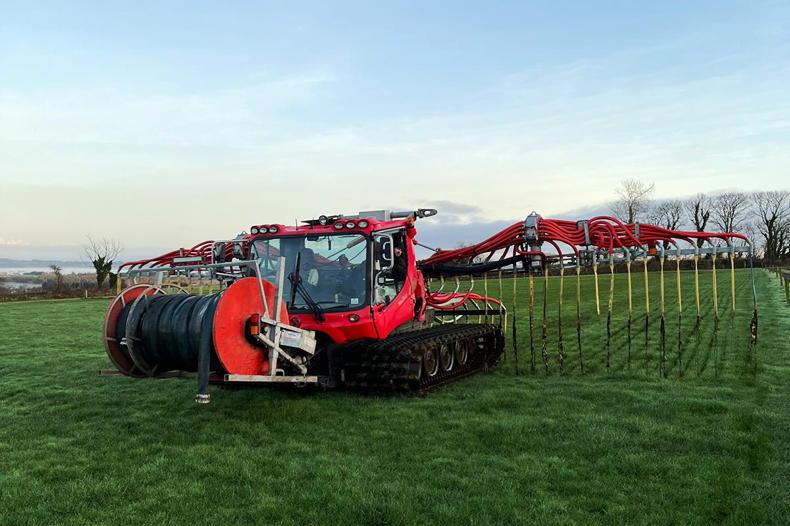
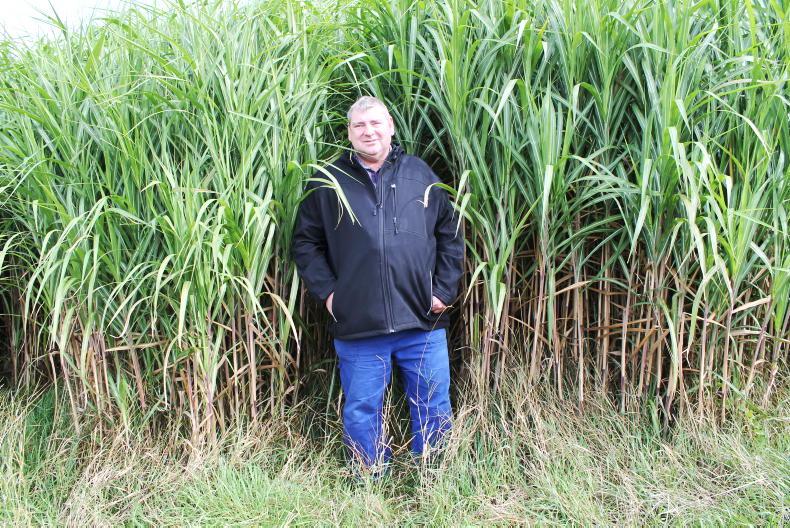
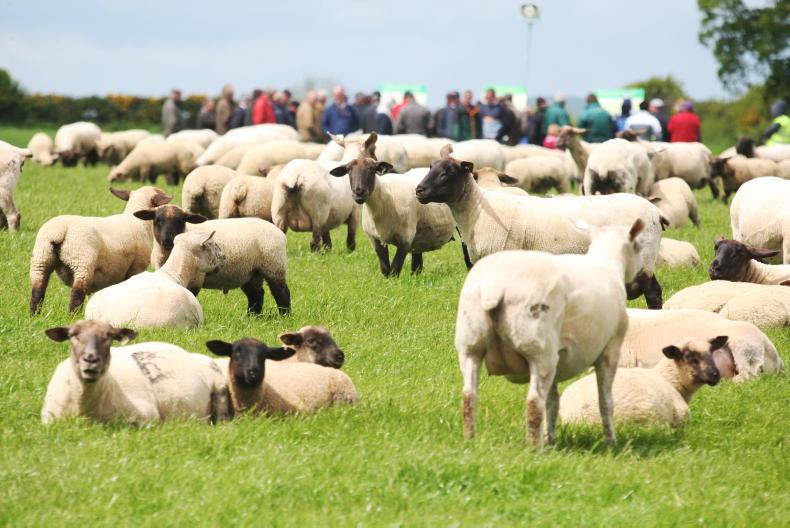
SHARING OPTIONS